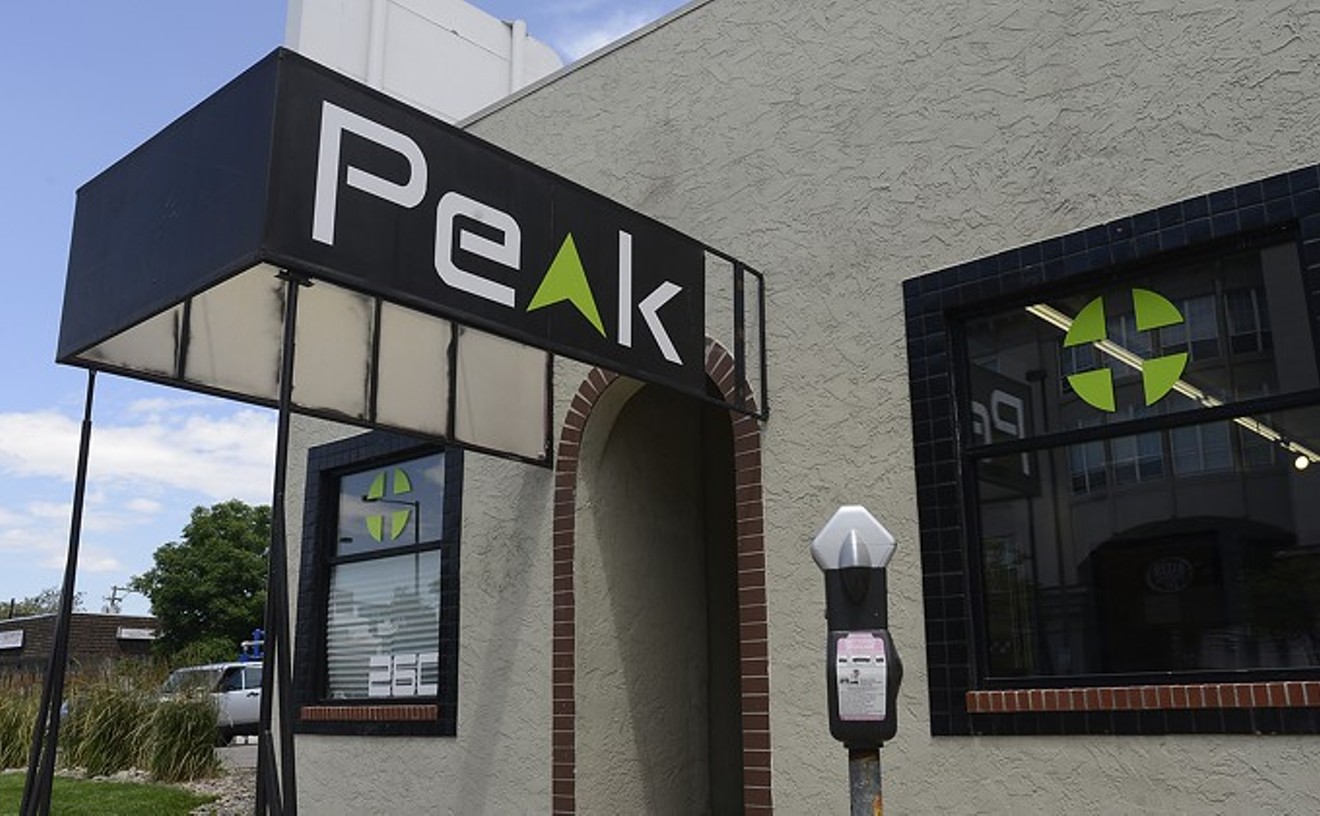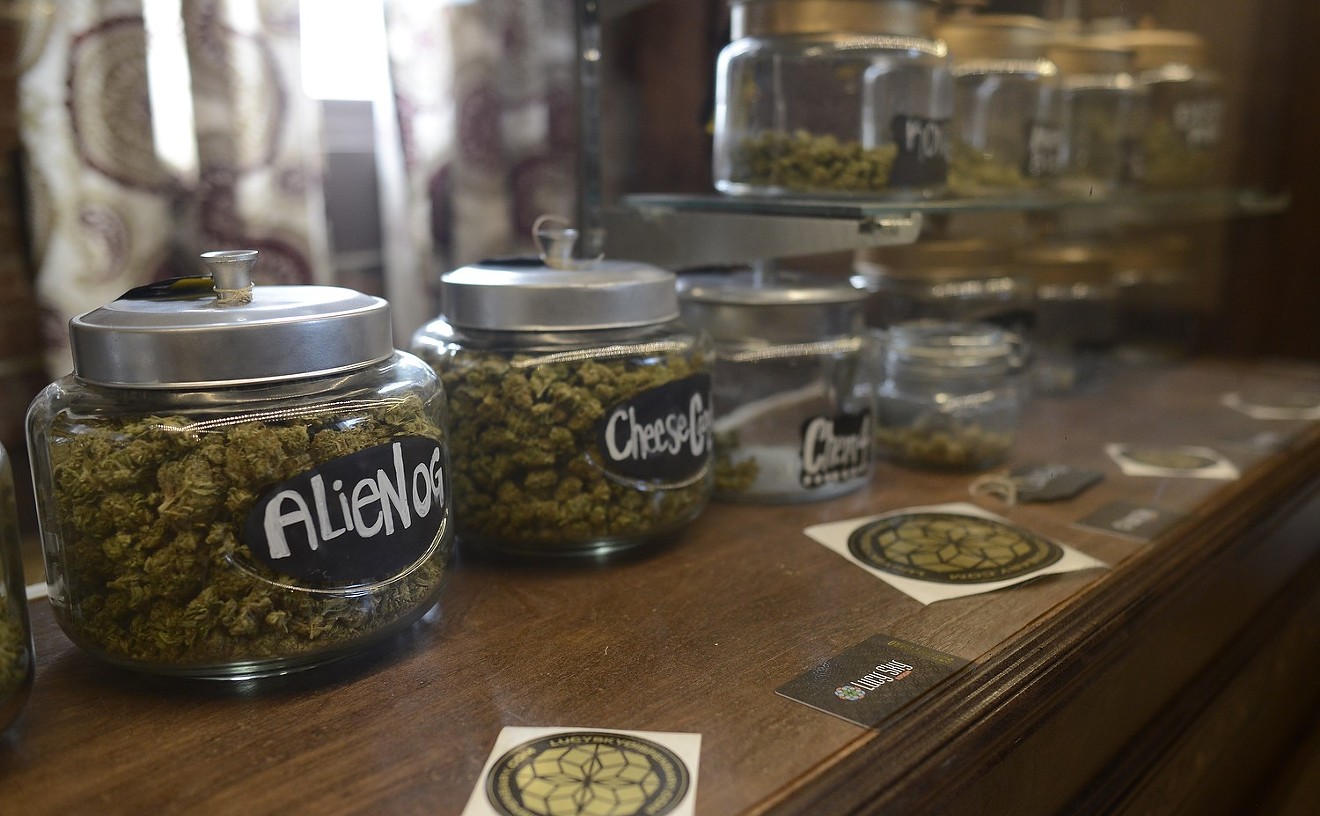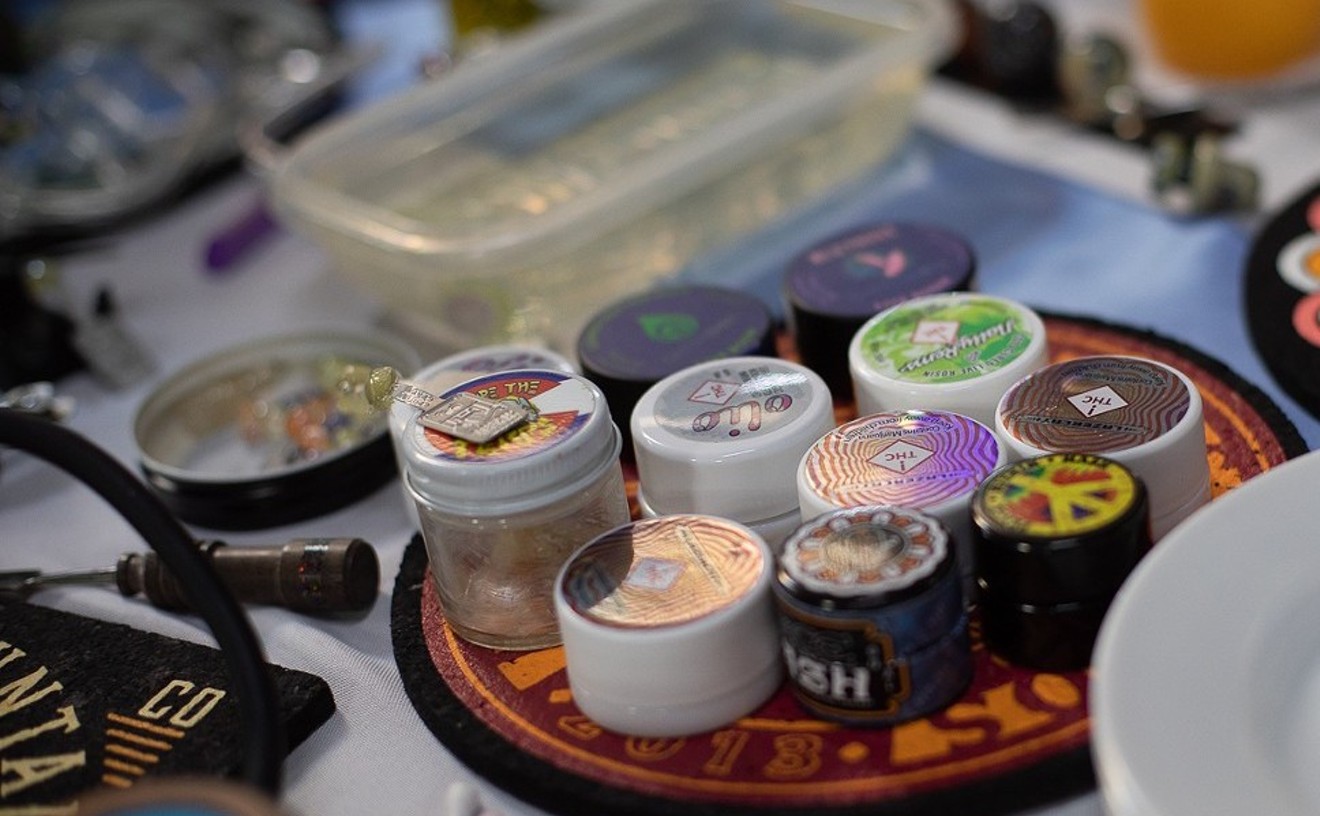CDOT had been searching for ways to spark more honest conversation about driving under the influence of marijuana, says department spokesman Sam Cole. According to CDOT data, today over 90 percent of Colorado marijuana users know that they can get a DUI for driving high, up nearly 50 percent from the early days of recreational legalization. While Cole and his team are proud of that progress, he stresses that it means little when, in a recent CDOT survey, over half of the users reported consistently driving high in the past thirty days.
"Frankly, we're a little frustrated that we weren't moving the needle enough in fixing the issue of driving high," Cole says. "We've only been having conversations about driving high for the last few years in a meaningful way, but have been talking about driving drunk for decades." According to a 2017 Harris Poll study, a majority of people believe that using cell phones for social media and texting while driving is more dangerous than driving under the influence of marijuana.
Moving away from CDOT's "Drive High, Get a DUI" campaign of public-service announcements and materials, the new initiative, "The Cannabis Conversation," will ask Coloradans to participate in anonymous online surveys, sharing their opinions and information about their actions related to stoned driving. CDOT officials will take their show on the road, too, going to various events throughout the spring for feedback. The campaign's first public appearance was at the Winter on the Rocks concert at Red Rocks Amphitheatre on January 26.
"The campaign seeks to understand why some marijuana users choose to drive high, what the public perceives as the dangers of doing so, and how campaign partners can more effectively address the situation," an announcement from CDOT reads. "Both marijuana users and non-users are encouraged to participate in the process."
In 2016, there were 77 fatalities in Colorado that involved drivers with active THC in their blood, according to CDOT. "We now say active, because THC can be in someone's system inactively without impairing them," Cole says. "We were called out for that in the past, and rightly so." Cole is referencing previous post-legalization CDOT studies that didn't differentiate between active and inactive THC, the psychoactive compound in marijuana that can stay in a user's system days after use, when the effects are long gone.

The campaign debuted at the Winter on the Rocks concert January 26.
Courtesy of the Colorado Department of Transportation
Lightshade Vice President of Marketing and Social Responsibility Shannon Brooks says it's important for her industry to not only educate consumers about the dangers of stoned driving, but also to make sure that conversation isn't skewed. "We want to help normalize that conversation," she explains, pointing to a lack of baseline data for comparative studies on marijuana DUIs before and after legalization, as well as law enforcement's failure to separate DUIs that involve marijuana from DUIs that involve marijuana and alcohol or other drugs.
"We want to open up this conversation with consumers without putting them on the defensive. It's really important the cannabis consumer be heard in this," she says. "But there's a misconception from consumers that when they consume cannabis, they're a better driver. They're really not." Brooks stresses that consumers must know the difference between microdosing or medicating and impairment, comparing small doses of THC to having one glass of wine.
There is a strong possibility that CDOT will visit Lightshade dispensaries to speak with customers as they enter or exit the bud rooms, according to Brooks. "We have locations where 40 percent of our customers are from out of state. It's about educating them," she says. "It's also about explaining to them that [the marijuana] we have here is probably stronger that what they're getting at home."
CDOT, the Marijuana Industry Group and several dispensaries including Lightshade partnered with Lyft for a promotional discount to discourage marijuana consumers from driving high. Labeled the 320 Movement, the promotion offers ride discounts once a month through April 2018.
Cole says CDOT will use information from the anonymous surveys to shape future public-awareness campaigns and create documentary-style public-service announcements. "I think the whole country looks to Colorado and driving high since we were the first state to legalize it," he adds. "This is the first community engagement of its kind, and we're excited about it."
Anyone interested in taking the survey can find it on the CDOT website.












